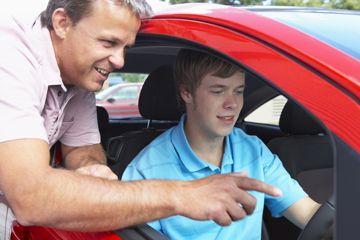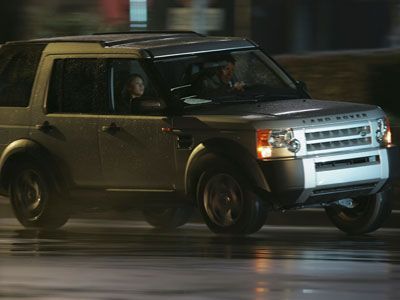
If you drive a car, you've undoubtedly had at least a few frustrating or scary experiences with really bad drivers — you know, the guy behind you who crosses the double-yellow line to make a sudden whip-around pass into oncoming traffic. Or the one who blithely taps the brake and rolls through a stop sign, instead of coming to a full stop. Never mind the habitual speeders, the tailgaters or the absentminded menaces who seem to have forgotten how to use a turn signal.
Indeed, in a 2011 study conducted by GMAC Insurance, nearly one in five drivers weren't able to pass a written test of basic driving knowledge, the sort that license applicants take. But even though most people passed, there were some glaring gaps in critical areas. Eighty-five percent of those tested, for example, couldn't name the correct thing to do when approaching a yellow traffic light, and only one in four knew how to calculate the safe distance for following a vehicle.
Advertisement
The idea of requiring experienced motorists to regularly demonstrate their competence isn't something that's ever been conducted on a widespread basis in the U.S., where some states didn't even require novice drivers to pass a road test until the 1950s. Only one state, Illinois, has a law mandating road skills tests for license renewals, and that's only for motorists who've reached age 75. (New Hampshire once had a similar age-related testing requirement, but repealed it in 2011.) As this 2014 Pennlive.com story details, Pennsylvania randomly selects a small sample of the state's 45-and-older drivers and requires them to undergo additional medical and vision exams; based on those results, they might have to take a driving test as well. Additionally, a handful of other states — Iowa, Missouri, Michigan and California — allow officials to selectively require road tests for license holders whom they have reason to believe might be unsafe. That's according to this compendium of drivers license laws by Claims Journal and AAA.
In Iowa, for example, "drivers with valid licenses may be asked to demonstrate their driving ability prior to renewal due to changes in their health," Andrea Henry, director of strategic communications and policy for the Iowa Department of Transportation, explains in an email. "This includes physical and mobility conditions, as well as reduced vision and cognitive issues." While data on how many retests are conducted wasn't available, most of those drivers end up getting renewals anyway, though many have restricted privileges such as a lower personal speed limit or daytime driving only.
Advertisement

